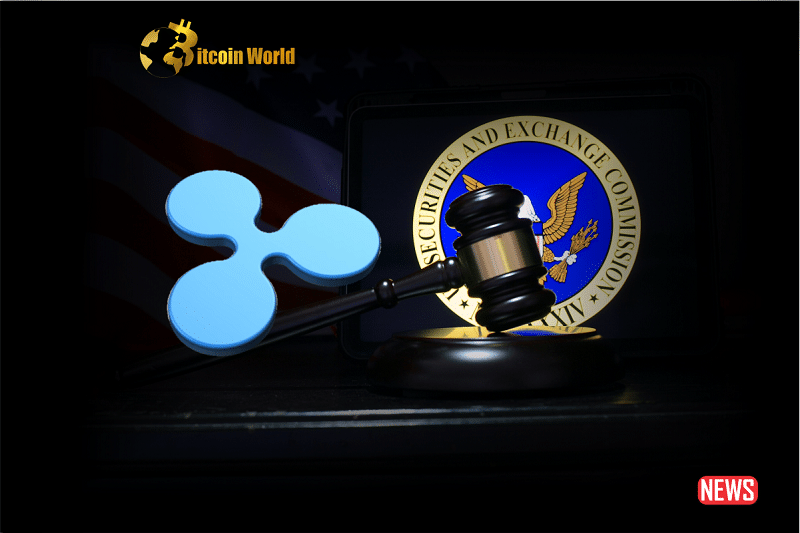The ongoing legal battle between Ripple and the U.S. Securities and Exchange Commission (SEC) has been a hot topic in the crypto world for quite some time. But could we be nearing a significant turning point? John Deaton, a prominent lawyer and staunch supporter of Ripple, certainly thinks so. He’s been vocal about his belief that Judge Torres, the presiding judge, will deliver a comprehensive verdict on whether XRP truly qualifies as a security in her upcoming summary judgment. Let’s dive into why Deaton is so optimistic and what this could mean for the future of XRP and the broader cryptocurrency landscape.
Why is Deaton Betting on Judge Torres?
Deaton’s confidence isn’t just wishful thinking. He’s meticulously analyzed the case and believes Judge Torres will directly address the core question: is XRP a security? He’s taken to Twitter, a modern-day public square, to share his insights, arguing persuasively that XRP simply doesn’t fit the mold. He anticipates Judge Torres will tackle the contentious issue of secondary sales head-on, a point some legal experts believe might be sidestepped.
XRP: Not a Security? Deaton’s Comparisons
Deaton’s core argument boils down to this: “XRP IS NOT A SECURITY.” He uses everyday examples to illustrate his point, drawing parallels to seemingly unrelated assets. Think about it:
- Orange Groves: You can invest in an orange grove hoping for a return, but the orange itself isn’t a security.
- Whiskey: Investing in a cask of aging whiskey is an investment, but the whiskey itself isn’t a security.
- Condos: Buying a condo as an investment doesn’t make the physical property a security.
His most compelling comparison, however, is with Bitcoin (BTC). Deaton highlights that even though Bitcoin was initially marketed and sold as an investment, it’s now widely recognized as a digital commodity. The inherent nature of the asset, he argues, remains unchanged despite its initial investment context.
Will Secondary Sales Be Addressed? Deaton Thinks So
Here’s where Deaton’s prediction diverges from some legal circles. He firmly believes Judge Torres will tackle the issue of secondary market sales of XRP. Why? He argues that for the judge to ignore the SEC’s theory on this would be akin to “judicial activism.” He points to the Telegram case as a point of contrast.
In the Telegram case, Judge Castel ruled against Telegram, forcing them to repay investors after their unsuccessful initial coin offering (ICO). However, Deaton emphasizes a crucial difference: the Telegram case involved formal, written contracts associated with the ICO. This isn’t the case with XRP.
XRP vs. Telegram’s GRAM: Key Differences
To further illustrate his point, Deaton highlights the distinctions between XRP and Telegram’s GRAM token. Let’s break it down:
| Feature | XRP | Telegram’s GRAM |
|---|---|---|
| Contractual Agreements | No written contracts involved in secondary sales. | Involved written contracts during the ICO. |
| Trading History | Openly traded on the XRP Ledger (XRPL) for over seven years. | Limited trading history before the SEC intervention. |
| SEC Employee Ownership | SEC staff members were permitted to own XRP until 2019. | SEC staff were not permitted to own GRAM. |
Deaton argues that the SEC’s theory in the Ripple case hinges on the idea of continuous activity resembling an ICO, treating each XRP sale as part of a broader securities offering. However, the lack of formal contracts and the established trading history of XRP on the XRPL present a different scenario.
The Crucial Role of Secondary Markets
The debate surrounding secondary market transactions is central to the SEC vs. Ripple case. The SEC’s accusation that Ripple offered XRP as an unregistered security often blurs the lines between Ripple’s direct sales and the subsequent trading of XRP on exchanges. This distinction is critical.
Deaton suggests that Judge Torres might draw upon the SEC vs. LBRY lawsuit for guidance, where this issue was previously examined. This could provide valuable insight into how the court might approach the complexities of secondary market transactions in the context of digital assets.
Looking Ahead: What’s at Stake?
While no one can predict the future with certainty, John Deaton’s optimism offers a compelling perspective. His belief that Judge Torres will thoroughly address the fundamental question of XRP’s security classification is a significant point of discussion within the crypto community. His arguments, rooted in the inherent nature of XRP and comparisons to other assets, coupled with his expectation for addressing secondary market sales, paint a picture of a potentially pivotal decision.
The outcome of Judge Torres’ ruling could have far-reaching implications, not just for Ripple and XRP, but for the entire cryptocurrency industry. Clarity on the security status of digital assets is crucial for fostering innovation and providing regulatory certainty. Whether Deaton’s optimism proves well-founded remains to be seen, but one thing is clear: the crypto world is watching and waiting with bated breath.
Disclaimer: The information provided is not trading advice, Bitcoinworld.co.in holds no liability for any investments made based on the information provided on this page. We strongly recommend independent research and/or consultation with a qualified professional before making any investment decisions.




